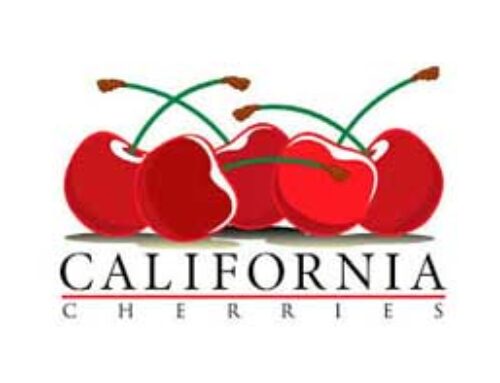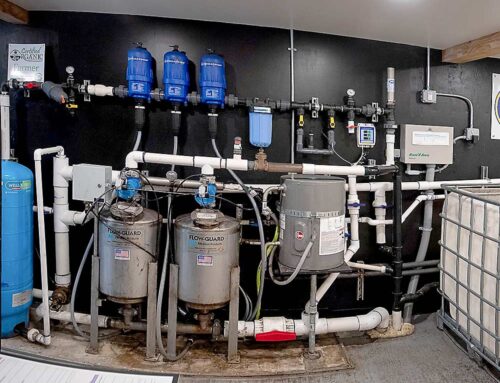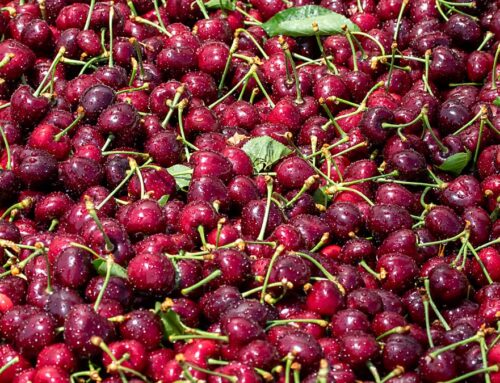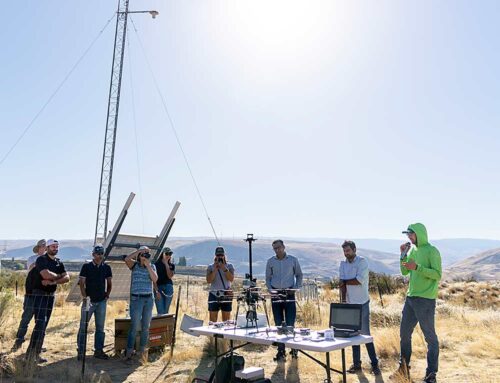family background/ John is a fourth-generation cherry grower who pursued degrees in sustainable agriculture, integrated plant science and fruit and vegetable management before joining Blue Bird as a horticulturist.
age/ 25
grower/ Wenatchee, Washington
crops/ Cherries
business/ Horticulturist with Blue Bird Inc.

How did you get your start?
The first time I was on the farm I was driving four-wheelers around with Dad. Workwise, it was changing sprinklers with my grandpa. Every time he’d go out early in the morning, I’d go out and change the hand lines.
Even if I couldn’t do anything, I was there, learning, to where I eventually took over irrigation duties full time. At that time, I was learning how beautiful the fruit was and how amazing it was that a tree could grow something like that.
How was growing up on the farm?
I’d always help with the annual cherry harvest. My grandfather and dad were very hard working and they expected the same out of you.
Because of that, I really enjoyed being around them in the orchards, working to keep our cherry orchards going well. I also wanted to understand the science of agriculture and learn the new methods and stuff coming out.
To be profitable, I realized that farmers need to be on the edge of new varieties, new training systems for cherries, apples or pears, with an understanding of how they’re going to work on the farm.
What are your thoughts about different varieties?
We take our cherry growing seriously. This current season has shown that our cherries are coming out at the same time as many others, so we’re shifting to later varieties. I think choosing particular varieties depends partly on the location of where you are growing.
If you traditionally have cherries that come off early, you’ll want to choose a variety that comes off even earlier, so you can fall into that niche of the market. Where we’re at, in Wenatchee Heights, it’s a later market.
So, we’re wanting to go even later with any new varieties.
To me, growing cherries has gone from where growers were focused on the taste of the variety — growing a piece of fruit that they liked — to growing a particular variety based on where that cherry falls in the market timing.
After college, how have you evolved in your career?
I look at trees differently. I pay more attention to them, and if I see a tree that’s stressed, I dive into figuring out why it’s not doing well.
It could be a nutrition deficiency, an irrigation deficiency, poor soil — any number of things. But as I’ve learned, I see much more stuff out in the field. For instance, I’m noticing virus symptoms, disease potential, fruit that doesn’t taste very well, and I’m looking harder for insects that I didn’t know were there before.
Now I know where these issues are at and understand their life cycles.
What about cherry training systems?
I’m interested in fruiting wall methods — basically translating fruiting wall systems from apples to cherries.
It helps control labor costs, ladder work and can increase your tonnage per acre — all the while reducing employee injuries from ladder work. As growers, if we can make it easier for the workers to pick the fruit, then both the grower and worker will make the most money per acre as possible.
Any other farm management improvements?
Our family is still using the lugging system, to where pickers are dumping 11 to 12 lugs into a bin on a bin trailer before it’s hauled and stacked in a refrigeration unit.
But as modern packing vision systems can see more defects, people are going to have to handle the fruit a lot less.
We may end up going to a group system or picking directly into the bin so the fruit is handled as little as possible. I think moving in that direction is the future of cherry harvesting.
What’s fun about what you do now?
I’m a horticulturist and a field consultant, and I enjoy being outside everyday trying to help other growers make as much money as possible.
I walk through other farmers’ orchards and try to understand how the trees are doing and if there’s any changes in the trees, then I give suggestions and hope they’ll grow better quality fruit.
What advice would you give young growers?
Pay attention to how fast the industry is changing. You’ll see little hints that something may change, then suddenly it’s here and you’ll need to make changes the next day.
Pay attention and prepare your farm so it can change with the industry. This is an industry where you’re outside all the time, learning how to grow the best quality fruit for people to eat.
As the population continues to grow around the world, your job will only become more important. We need more people in this industry for that reason.
– by TJ Mullinax






Leave A Comment